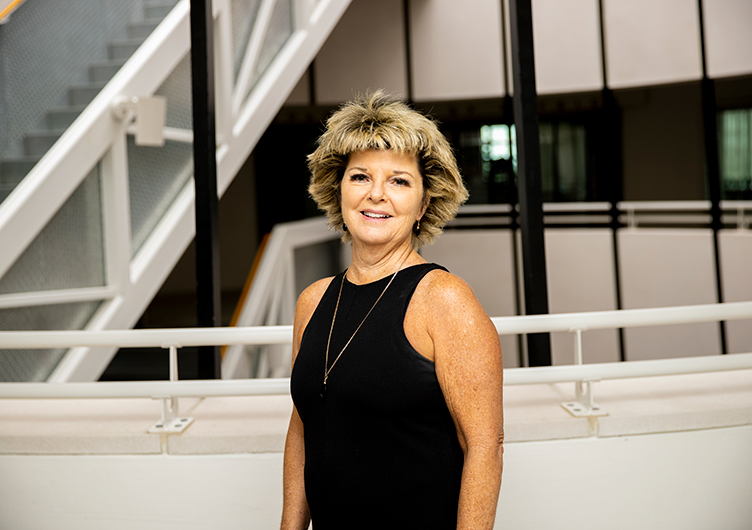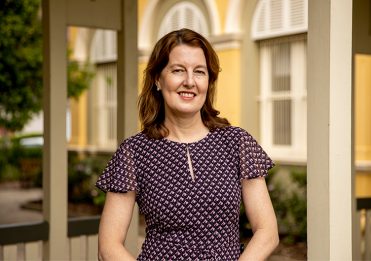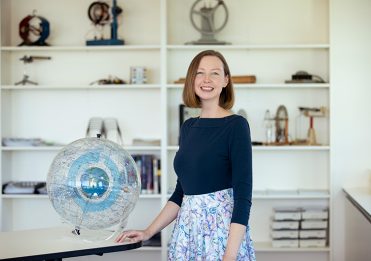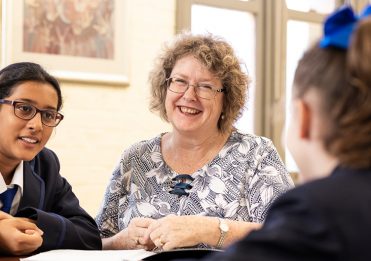I grew up in Brisbane in a big family. Being one of seven, I always had siblings to play with. My older brother, Kim—only 13 months older than me—was really interested in conducting experiments with his Hot Wheels set, and I found myself preferring to play with him rather than with my little sister—16 months younger than me—who enjoyed playing with dolls.
I think from the time I was born I just preferred that sort of thing—understanding the mechanics of how things work.
In my senior schooling years, I knew I wanted to study Science, but the school I went to didn’t prioritise it as a subject and so I moved to a school that did. Despite one off-hand comment from my Physics teacher—who told me, and the four other girls studying Physics in a class of 20, to ‘go to Home Economics where you belong’—it was the best education I could have asked for. Naturally, the five of us were horrified by his comment and set out to prove him wrong, which we did. Two of them went on to study medicine, one did VET Science and the other became an accountant.
I have always loved learning, and not just Science; History and French were also some of my favourite subjects. When my mother told me I would make a good teacher, it was a moment of realisation—the so called ‘light bulb’ moment. So, I studied a Bachelor of Science at The University of Queensland, a teaching diploma at the Queensland University of Technology and then a Master of Teaching at Curtin University. I was always fascinated with computing and coding, and when computers became a big thing, I went back to do a Bachelor of Computing. When BGGS got their first four computers, they gave one to me because of my qualification. After that, I completed my doctorate in Education.
I have been at Brisbane Girls Grammar School since I was 23 years old. I have never faced any roadblocks in STEM because of gender. With our students, I think the message is that if you’ve given something your best shot and find that it isn’t for you, there’s no shame in changing your mind, but make sure you’ve given it your best.
I don’t teach the girls until they are in Year 11 and 12, and by that point most know exactly where they are headed. They know what they must do to get there, and our job is to open the world of science to them and give them the confidence they need to succeed.
There are so many joys of teaching Science to young women. Our challenge is that the majority of our students are going to go into a science-based career; therefore, our curriculum has to be devoted to making sure those students get what they need to go to university and become the sort of scientist who is going to shape the world. Also, we owe it to the ones who aren’t going to be scientists, but still can shape the world because of their ability to understand and challenge global issues. They aren’t going to be the ones developing new innovations, but they are going to be the ones who determine how they are used, and if they are used wisely, ethically and sustainably. So, we have that dual goal.
I say to staff at the beginning of the year, we are the faculty of wonder and awe. When you go into those classrooms, you bring the magic.
Since the opening of our new Science Learning Centre in 2020, we have moved freely and seamlessly from one activity to another, and it is education at its most fluid. That’s really the beauty of this school; if you can dream it then there are people working tirelessly to make it happen, and this building is a culmination of many, many dreams.
When I think about why gender equality is important in STEM, there are a lot of answers, but one sticks in my mind.
If you are an engineer and you are designing something for women to use, then you have to think about women and how they use it. Science is about making lives better, improving the quality of life for the citizens of the world—and 50 per cent of those citizens are women, and therefore, women need to contribute to making the world a better place. They just have to. Or else, you miss some very, very important life-changing ideas.





